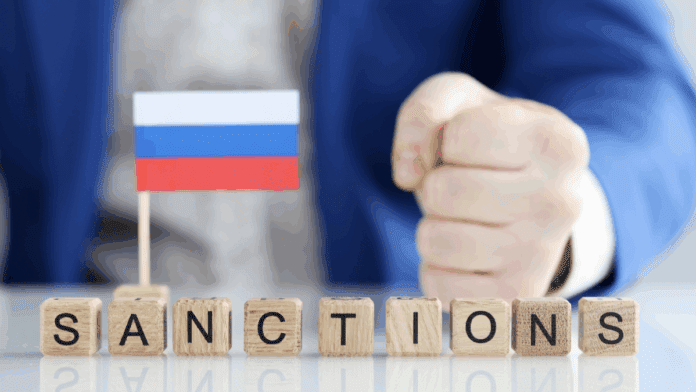President Volodymyr Zelensky signed a powerful new order aimed at stopping individuals and companies from doing business in areas of Ukraine currently under Russian occupation. This includes regions like Crimea, which have been controlled by Russia for years.
The new sanctions come as a part of Ukraine’s growing effort to punish those who work with or support the occupying Russian forces. According to President Zelensky, these people are not just running businesses—they are helping the enemy by making money in occupied territory and paying taxes to Russia. This, he says, helps fuel the ongoing war.
The order was made official following a decision by Ukraine’s National Security and Defense Council. A full list of the people and companies affected by the sanctions was published on the official website of the President’s Office.
Zelensky also made it clear that this is just the beginning. More sanctions are expected to follow. In his message, he said that Ukraine is also working closely with foreign allies to make sure the same punishments apply in other countries too. His goal is to stop all those who support the war or do business under Russian control from having access to international systems and markets.
Zelensky Target Business Links With Occupied Territories
The new sanctions target both individuals and companies that are believed to have worked with Russian occupation authorities. These are not only people who left Ukraine but also businesses that were once seen as important parts of the country’s economy.
Many of the names on the list were not explained in detail, and there is no public information yet about the exact nature of their business ties with the occupied areas. However, the focus of the action is clear: anyone helping to normalize or profit from the occupation will face serious consequences.
One of the companies that has been sanctioned owns major shopping centers in Ukrainian cities. Until recently, it had support from large investment firms. These sanctions now cut them off from Ukraine’s legal and financial systems. Other people on the list had previously fled Ukraine and are now being punished for past crimes and alleged acts of cooperation with Russian forces.
The move sends a strong message: Ukraine considers working with the occupying power to be an act of betrayal. Any profits made under those conditions are seen not just as unfair—but as harmful to the country’s security and future.
Human Rights Concerns Around the Law
Even though the new sanctions are part of Ukraine’s efforts to fight back, not everyone agrees with how the law is written or used. Human rights groups in Ukraine have raised concerns. They point out that the country’s laws on collaboration may not always consider people’s real-life situations.
For example, some people in occupied areas may run small businesses just to survive. They might sell food or offer services to keep their families safe and fed. According to rights groups, the law does not clearly protect people who are just trying to make ends meet.
A report from 2023 said that punishing these people could sometimes break international rules on human rights. It warned that the current version of the law could lead to unfair treatment. The concern is that people who have no choice but to work under occupation might be seen as criminals, even if they did nothing wrong on purpose.
Still, the government says the new sanctions are an important step. They aim to block those who have openly chosen to support the occupying side and who benefit from the war. President Zelensky made it clear that Ukraine wants justice to apply everywhere—not just in its own borders, but also through cooperation with allies abroad.


